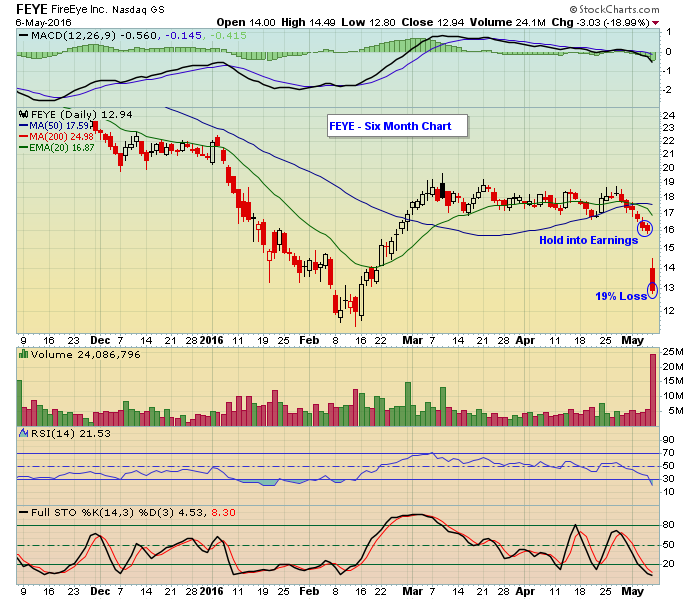If you've been trading for a decent period of time you know how quickly things can turn against you. Sometimes with no warning, all of the good work you've done seems to disappear and before you know it, profits quickly disappear as well.
As a trader for many years I have experienced the same thing. But each time I stumble I step back and try to figure out what I might have done differently to change the outcome and I have found that I always learn from my mistakes.
For example, from time to time I will trade Leveraged ETF's in a particular sector that I think is extremely overbought or oversold. This allows for the possibility of a substantial gain in a short period of time. However, I learned the hard way when the market was under fire early in the year- let's say I let my guard down - that these ETF's really aren't meant to be held for long periods because they can deteriorate dramatically over time. Plus, if the trade doesn't go the way you think it will, the losses can mount quickly, putting a serious dent in the pocketbook.
Here's another example, one that I know even the most experienced trader falls trap to. It happens when you buy a stock for a trade and set a specific stop loss in case the trade goes against you. It's a requisite to trading. But sure enough, when the stock falls through the stop loss, you simply ignore it, thinking it will reverse in your favor, and when it doesn't, your losses continues to grow.
Here's a great example that has to do with earnings season; holding a stock into its earnings report. Some traders like to do this to feel the "thrill" that comes if the stock soars after it reports its numbers. But what if the opposite happens, and the stock gets clobbered? Just look at the chart below on FireEye, a company that reported its earnings this past Thursday, and ask yourself how you would feel if you held a substantial position in this stock when it reported its numbers:
 The point is this. Trading successfully takes a lot of hard work. And it requires you to brush up from time to time, what I call a "Trading Tune Up" in order to stop making the same mistakes. In fact, I am considering conducting a Trading Tune Up webinar sometime in the next few weeks, depending on the level of interest. Accordingly, you can click here if you are interested and want to learn more.
The point is this. Trading successfully takes a lot of hard work. And it requires you to brush up from time to time, what I call a "Trading Tune Up" in order to stop making the same mistakes. In fact, I am considering conducting a Trading Tune Up webinar sometime in the next few weeks, depending on the level of interest. Accordingly, you can click here if you are interested and want to learn more.
We're all going to make mistakes when we trade; it's part of the risk of being involved in the stock market. But when it becomes more regular than from time to time, you've got to look at making some serious adjustments.
At your service,
John Hopkins
